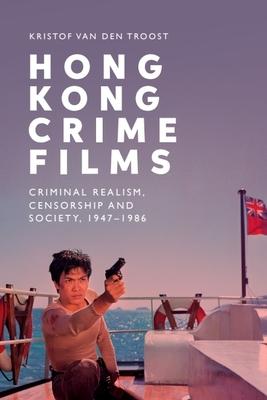Hong Kong Crime Films is the first book detailing the post-war history of the genre before the release of John Woo's A Better Tomorrow (1986), the film that put Hong Kong action-crime on the global map. Focusing on what it calls the mode of 'criminal realism' in the crime film, the book shows how depictions of Hong Kong's social reality (including crime) were for decades anxiously policed by colonial censors, and how crime films tended (and still tend) to confound and transgress critical definitions of realism.
Drawing on extensive archival research, Hong Kong Crime Films covers several neglected topics in the study of Hong Kong cinema, such as the evolving generic landscape of the crime film prior to the 1980s, the influence of colonial film censorship on the genre, and the prominence and contestation of "realism" in the local history of the crime film.

Hong Kong Crime Films: Criminal Realism, Censorship and Society, 1947-1986
Hong Kong Crime Films is the first book detailing the post-war history of the genre before the release of John Woo's A Better Tomorrow (1986), the film that put Hong Kong action-crime on the global map. Focusing on what it calls the mode of 'criminal realism' in the crime film, the book shows how depictions of Hong Kong's social reality (including crime) were for decades anxiously policed by colonial censors, and how crime films tended (and still tend) to confound and transgress critical definitions of realism.
Drawing on extensive archival research, Hong Kong Crime Films covers several neglected topics in the study of Hong Kong cinema, such as the evolving generic landscape of the crime film prior to the 1980s, the influence of colonial film censorship on the genre, and the prominence and contestation of "realism" in the local history of the crime film.